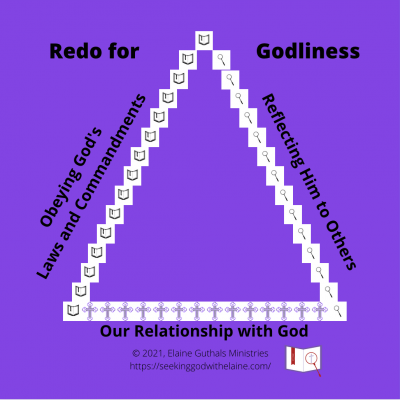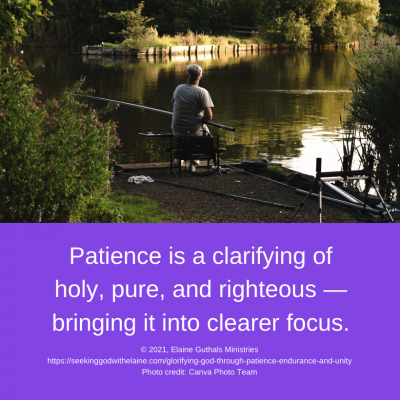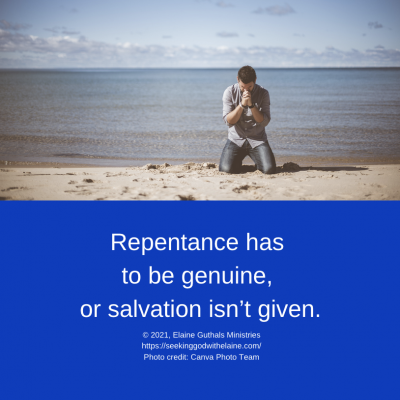
Main Nuggets
- God wants us to change our character so that we can apply the laws and commandments in any situation in which we find ourselves (The Law of Liberty).
- If we live or die, it doesn’t matter — we do it for the Lord (The Law of Belonging).
- Having a strong faith does not exclude us from judgment any more than a weak faith act as an excuse (The Law of the Future).

Our Relationship with God
- Only God has full wisdom and knows exactly how everything is and should be. He only tells us a part (The Law of Unity).
- A disciple weak in faith is separated from Jesus (The Law of Unity).
- There is only One true God that we all serve (The Law of Liberty).
- We live to bring glory and honor to God (The Law of Liberty).
- We are guarded by God’s power because of our faith. He has promised to sustain us until the end, when He will reveal part three of salvation to those who have worked out their salvation (The Law of Liberty).
- God calls us to worship Him (The Law of Liberty).
- God calls us to have a relationship with Him (The Law of Liberty).
- God has an individual relationship with each of us. In my opinion, He builds that relationship based on what we need to get us to His character. That is what happens on each of our Sanctification Roads – making each of them different. In a way, you can say it is the same. God is sanctifying us. In a way, you can say it is different. He is sanctifying us differently (The Law of Liberty).
- God expects us to live our lives according to His character (The Law of Liberty).
- We have to know what we believe. Knowing what we believe comes from seeking God. When we do all the steps in seeking God, we get a solid foundation (The Law of Liberty).
- There is no debate that we are God’s (The Law of Getting Along).
- We were created to put God first (The Law of Getting Along).
- God created us to worship Him. He wants us to have a relationship with Him (The Law of Getting Along).
- God did not give us a personality just to ask us to squash it in submission to Him. God asks us to make Him our top priority (The Law of Getting Along).
- Someone who is not putting God first is looking at every situation to see how s/he is being impacted (The Law of Getting Along).
- Our service to God must be voluntarily (The Law of Belonging).
- If we don’t do complete submission, we won’t achieve complete set apart. If we don’t get complete set apart, we don’t get complete perfection. If we don’t get complete perfection, we don’t get final salvation (The Law of Belonging).
- Our way of life has to be by God’s rule. Our goal should be to bring Him glory (The Law of Belonging).
- We need to consider ourselves dead to the world (The Law of Belonging).
- After we’ve asked God to forgive us of our sins, we can’t hang on to them. We have to forgive ourselves (The Law of Belonging).
- We have to willingly submit to God because Jesus died for our sins. This is going to be a daily submission (The Law of Submission).
- Jesus has to be sovereign of our inward and outward lives (The Law of Submission).
- Jesus is Lord of the dead and the living (The Law of Submission).
- God is our Judge (The Law of the Future).
- God judges us every day — He isn’t just waiting for the end (The Law of the Future).
- Did you ever really think about why Adam and Eve hid after they sinned? They knew God was going to come looking for them to judge them. Not to have their evening chat. Not to share an evening meal. To judge them — they expected to be called on the carpet (The Law of the Future).
- There is only one standard by which we will all be judged. We should hold ourselves and others to that standard (Don’t Slander Our Good).
- God wants us to be genuine in serving Him (Don’t Slander Our Good).
- Some try to fake that they are good. An example is the Pharisees. They thought their religious ceremonies would cut it. Jesus said no. It is about relationship, not ceremony (Don’t Slander Our Good).
- God doesn’t want us on autopilot. He wants to be our Pilot (Don’t Slander Our Good).
- The kingdom of God is a soul kingdom so that God can control our character (The State of the Kingdom of God).
- When we seek first the kingdom of God, that means we submit our whole hearts and lives to God (The State of the Kingdom of God).
- Righteousness is all about God. It is our relationship with Him. We are justified and freed from sin to follow God’s moral laws (The State of the Kingdom of God).
- Having joy in all circumstances designates us a child of God. We get the joy from Him as part of our adoption (The State of the Kingdom of God).
- The joy has to come before the peace. The unbridled happiness that produces the tranquility, not the other way around (The State of the Kingdom of God).
- We are to have the right qualities to serve Christ (The State of the Kingdom of God).
- Whoever serves Christ is righteous, peaceful, and joyous. We must possess these three qualities to serve Christ. If we don’t, we don’t really serve Him. We are just going through the motions (The State of the Kingdom of God).
- God calls us to love Him, praise Him, and serve Him. We will find peace and joy when we do (The State of the Kingdom of God).
- Humility, love, and faith promote peace (How to Promote Peace).
- It is that quest for importance that tends to amp up the stress. The humility diminishes the pull of this world and puts our focus on God, creating the environment in which the peace can thrive (How to Promote Peace).
- Love will also grow in that environment. Not only is God righteousness, but God is also love. Love and peace go hand in hand (How to Promote Peace).
- We have to be very, very careful. We don’t want to have the focus taken off of God and His work and put onto us and our petty earthly squabbles (How to Promote Peace).
- We want to make sure we are doing God’s work on His timetable. We don’t want to derail His plan (How to Promote Peace).
- People are very important to God. Whether they are a strong disciple or a weak disciple today isn’t how He sees them. He sees them as perfected (How to Promote Peace).
Yes, we may be weak, but we are as God made us. Yes, we may we strong, but we may be fall into temptation and lose our way (How to Promote Peace). - We are to imitate Jesus as He submitted to God rather than pleased Himself (Who Do We Please?).
- This life is secondary. God and our spiritual condition and life are primarily. So, when we say we are to please our neighbor, that doesn’t mean we are letting them remain in sin. We are teaching them to live for God (Who Do We Please?).
- If we are trying to redo for godliness, we need to redo our character (Who Do We Please?).
- Scriptures help us transform to His godliness (Using the Scriptures to Build Hope).
- God is going to get His Word out to those who need it. We all need it (Using the Scriptures to Build Hope).
- Endurance and encouragement can only come from God when we live our lives imitating Jesus and loving one another (Glorifying God through Patience, Endurance, and Unity).
- Compromising God’s goodness would mean compromising God’s holiness, purity, and righteousness — meaning we would have the stain of sin because we would not be following God’s moral laws. Can’t do that (Glorifying God through Patience, Endurance, and Unity).
- Paul said the patience came from knowledge. We jump to us knowing more about God. We gloss over the fact that God knows every one of our sins. Because of Jesus and the fact that we have accepted Him as our Savior and Redeemer, He forgives us of those sins (Glorifying God through Patience, Endurance, and Unity).
- Imitating Jesus means we have His character. It takes patience and endurance to build it because that is what we are doing on the Sanctification Road (Glorifying God through Patience, Endurance, and Unity).
- We have one job as a unified body — glorify God (Glorifying God through Patience, Endurance, and Unity).
- If it isn’t about us, it isn’t about how far we are away from Him. It isn’t how far — it is whether our nose is in the right direction (Glorifying God through Patience, Endurance, and Unity).
- True joy and peace are blessings of believing in Sovereign God (A Prayer of Hope).
- Because we have the hope, joy, and peace, we have freedom from the stain of sin (A Prayer of Hope).
- Hope, joy, and peace can be attained. There is one way to do that — prayer (A Prayer of Hope).
- God is the author of abundant hope (A Prayer of Hope).
- Joy, peace, and hope can only come from God (A Prayer of Hope).
- God gives us hope when we read His Word. Yeah, sometimes it comes through the patience and endurance — not an immediate gift — but He gives it to us (A Prayer of Hope).
- We can’t have the hope, joy, and peace without God because we can’t be that without God. Those are part of perfection, and perfection is about being. Being is about God (A Prayer of Hope).
Glossary

Obeying God’s Laws and Commandments
- If we don’t love your neighbors, we haven’t met the foundation of entire law and all the demands of the prophets. It is that important (Who Do We Please?).
• A disciple strong in faith has a good grasp of spiritual knowledge (The Law of Unity).
• Being children of God frees us from the stain of sin (The Law of Liberty).
• We can’t believe what we please. We can’t rewrite God’s laws and commandments. We can’t say something that God says is a sin isn’t. Liberty does not mean we are given a pass to go on sinning (The Law of Liberty).
• If God has not given us a law or commandment on something, we should make decisions based on His character (The Law of Liberty).
• Disciples are not to have an opinion on something someone else does if God hasn’t made a law or commandment about it (Guarding against Offense).
• Something can be unclean to one person that is not unclean to another (Guarding against Offense).
• Things that are not forbidden and have no moral value cease to be indifferent when they became stumbling blocks and start violating the law of love. They now became the exact opposite of what God wants (Guarding against Offense).
• Jesus didn’t want them to be all about the ritual. He wanted them — and us to be about the relationship (Don’t Slander Our Good).
• We don’t want to get bogged down in the observance. We need to focus on the praise and worship (Don’t Slander Our Good).
• We damage our good ourselves by the choices we make (Don’t Slander Our Good).
• Sometimes, we use the outward ceremony to mask the inward desolate condition of our hearts. We don’t realize God has 20-20 vision in our hearts (The State of the Kingdom of God).
• Reputation and character are two different things, but both are important (Don’t Slander Our Good).
• See what that keeps talking about: moral character. It doesn’t say a word about reputation. Still, reputation is important. We must have credibility with those to whom we are witnessing (Don’t Slander Our Good).
• If God hasn’t expressly forbidden something, we should just keep our beliefs to ourselves on the indifferent items (Living in Faith and Love).
Glossary
Reflecting Him to Others
- If we look at the Sanctification Road as a continuum, we could be anywhere on our continuum. That means we could be either strong in our faith or weak. But others could be anywhere on their continuum, too. When we are at differing ends, it can be challenging at times (The Law of Unity).
- The problem is that people interpret Scriptures to mean different things. Some say abstinence is the way to go. Some say faith allows us to do whatever we want (The Law of Unity).
- We are not to give rise to contentious feelings among disciples (The Law of Unity).
- We can’t force someone to believe the same way that we do. We shouldn’t make our opinion of the law. This is especially true if it is over something trivial. We shouldn’t break our unity over something that, in comparison, is not important (The Law of Unity).
- None of us is going to know everything. We shouldn’t force our opinion on someone else when we can be wrong (The Law of Unity).
- We are not to judge those we consider are spiritually weaker than us. Though they are weak, they are still disciples (The Law of Unity).
- Sometimes, it is just as easy for the weak to judge the strong (The Law of Unity).
- God wants all of His children to be unified. Disciples should be patient with each other. We have to remember we are all still capable of sinning. We can still sin — and we will sin (The Law of Unity).
- A uniting factor should be our sincerity. We should each be genuine in our being a disciple of Christ. It should be our goal to do the do’s and not do the don’ts in order to grow our character to be like God’s. That alone should be a tie that binds us together (The Law of Unity).
- If Jesus accepts someone — we should, too. When we don’t accept them, we are using our standards, not God’s, on which to judge (The Law of Liberty).
- God wants us unified with His character. He wants us treating each other as if we were interacting with Him (The Law of Liberty).
- We were created to interact with each other (The Law of Getting Along).
- Living for others brings up two words: responsibility and accountability (The Law of Getting Along).
- Christian rights don’t begin where human passions end (The Law of the Future).
- We shouldn’t look to the church to make a pronouncement on what should be. It is God’s call, not man’s (The Law of the Future).
- Every person — living and dead — will bow before God and proclaim Him Sovereign God (The Law of the Future).
- Just because everyone is going to bow in end doesn’t mean God is going to go ahead and forgive everyone (The Law of the Future).
- We are only responsible for the plan God has for us. I am not responsible for Adam’s plan, but I was called to witness to him. If I didn’t witness to him, that was on me. If he didn’t ABCD, that was on him (The Law of the Future).
- Judgment can cause stumbling blocks to be put into place (Guarding against Offense).
- It becomes a fine line that we walk — our personal liberty (Rom. 14: 1-12) and our love for others (Rom. 14: 13-23). It is all about letting people believe what they believe when it does not violate God’s laws and commandments. It is living together within the church, loving God and each other (Guarding against Offense).
- When Satan tempts us to judge, he is not tempting us to judge on God’s standards. He is wanting us to judge on some convoluted version. Oh, Satan doesn’t want us to really know what God wants us to do. That would mean we were studying His Word and meditating on it. That is how we seek Him. When we seek Him, we find Him (Guarding against Offense).
- We are to influence our fellow disciples whether we intend to or not (Guarding against Offense).
- We need to watch our actions to ensure that we are not bringing spiritual ruin to other disciples (Guarding against Offense).
- Growing the peace in our lives isn’t easy, either. This will take work. We will have to keep our temper in check. We can’t go out looking for skirmishes (How to Promote Peace).
- Because God’s disciples are united in peace, His work can be completed in a timely manner (How to Promote Peace).
- The peace is for us, too, but that is what we extend to others (The State of the Kingdom of God).
• It is our duty as a disciple to help our fellow disciples in their walks and not cause them to stumble (Living in Faith and Love).
• Some things are unlawful only to some people (Living in Faith and Love).
• Let me process through some of the rules Hodge set down for things indifferent that are right or wrong according to the circumstances in which we find ourselves. Would harm come to others? Is it in any way accompanied with a sin? Would any important truth be denied in doing or not doing it? Remember, not forbidden. Maybe even more important, these are not a condition of salvation (Living in Faith and Love).
• The strong need to help the weak by being a good example to them. Don’t just bite on them. Show them better. Help them to be better (Who Do We Please?).
• Paul told us we have to make a conscious decision to give up what pleases us and please others (Who Do We Please?).
• Paul was only talking to the strong. He didn’t say a word to the weak. He didn’t say sign up for strength training. He didn’t call them second-class citizens (Who Do We Please?).
• We are to teach others about God’s love for us (Who Do We Please?).
• Every Tom. Every Sally. Every Elaine. No one is exempt from pleasing the neighbor. Neighbor means everyone else. No one is exempt here, either. No one is given a pass (Who Do We Please?).
• The strong are commanded to build up the weak here — teach the one who is weaker in the faith (Who Do We Please?).
• Think back to what we we talked about in Chapter 14. Lead with love. Don’t judge. Here, we are adding tolerate another disciple’s weaknesses, encourage them, and seek their strengths (Who Do We Please?).
• Our greeting must encompass Jesus’ love for all in order to build community (Glorifying God Together).

Miscellaneous
- If we take the eating thing a step farther, we will no longer need the Lord’s Supper to remind us of Christ’s death and resurrection. That was the whole purpose of the ordinance — our remembering. In Heaven there will be no forgetting what Christ has done for us (The State of the Kingdom of God).
- We aren’t going to get what we need out of the Scriptures in a single read. We will need to revisit the same passages multiple times until we glean all God has to tell us (Using the Scriptures to Build Hope).
- The hope is a product of the grace and encouragement. Think — if grace is the mom and encouragement is the dad, what a kid that would be! (Using the Scriptures to Build Hope)
- It really isn’t our sorrows and difficulties that connect to our hopefulness. Let’s say that again. Our trials do not connect to our hope. We have the hope regardless. We have God’s glorious hope for an eternal life when we are His disciples. Period (Using the Scriptures to Build Hope).
To read devotions in the Redo for Godliness series, click the appropriate button below.
